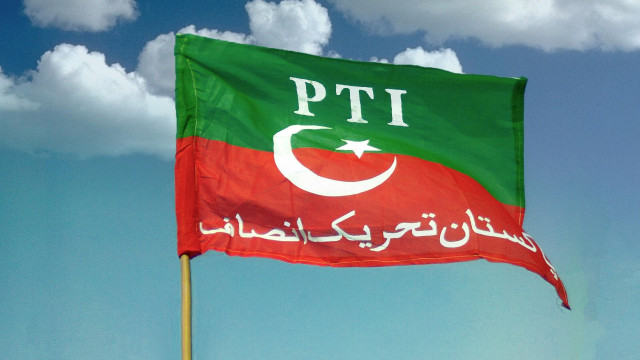LAHORE:
Pakistan Tehreek-E-Insaf (PTI) has denounced the verdicts issued by the Anti-Terrorist Courts, sentencing the main leader of the party Dr. Yasmin Rashid and another 40 to 10 years in prison in relation to the case of the disturbances of May 9. The party labeled the politically motivated decision and a hard blow for judicial integrity.
PTI has called for the ruling an attempt to interrupt its planned concentration on August 5, destined to commemorate the anniversary of Imran Khan arrest. Despite the reverse, the party has promised to continue its political activities.
Dr. Yasmin, 72, former provincial health minister and cancer survivor, has been in custody for almost two years. PTI highlighted the images of May 9, in which it can be heard that the protesters discouraged the protesters to enter the house of the commander of the body, arguing that the evidence undermines the charges presented against it.
Party officials claim that convictions are part of a broader campaign of political reprisals, noting that PTI leaders who publicly distance themselves from the party were acquitted in similar cases. They argue that those who remained loyal face disproportionate legal consequences.
PTI also questioned the credibility of the testimony of the witnesses presented at the trial. According to the party, the only witness, a police officer in service, had initially listened to the founder of PTI, Imran Khan, planning the events of May 9. However, during subsequent procedures through the video link, the witness refused to confirm that the testimony under oath.
Read more: Shah Mahmood Qureshi acquitted, Yasmin Rashid sentenced to 10 years in the case of May 9 riots
“This inconsistent and supposedly coerced testimony raises serious concerns about due process,” said the part, adding that the different results for loaded people in a similar way question the impartiality of the judicial process.
The party also criticized the ongoing restrictions on access to Imran Khan, who remains imprisoned. PTI states that family members, legal team and Khan party leaders have denied visit rights, in violation of Pakistanis prison regulations and international human rights standards.
According to the Prison Law of 1894 and the Rules of the 1978 prison, PTI argues that Khan, as a former Prime Minister and Class A prisoner, is entitled to designated legal and personal privileges. These include access to private quarters, medical treatment, consultation with doctors and personal lawyers, visiting rights and time appropriate for exercise.
The party argues that these rights are legal rights, not discretionary benefits, and urged the authorities to guarantee compliance with national and international norms regarding the treatment of prisoners.
Also more: Punjab opposition leader, supporters of PTI sentenced to 10 years in the case of May 9
A day before, an anti-terrorism court (ATC) in Lahore acquitted six leaders of Pakistan Tehreek-E-Insaf (PTI), including Shah Mahmood Qureshi and Hamza Azeem, in relation to the disturbances of May 9.
The court issued its verdict in the case on inflammatory speeches and vandalism on the Sherpao bridge. The court, which had completed the final arguments of defense and prosecution, reserved its decision before announcing the ruling.
The verdict stated that the ATC acquitted of Qureshi, Azeem and four other accused people due to insufficient evidence. However, the court found another 10 guilty and issued 10 -year prison sentences for his role in the violence that followed the arrest of the founder of PTI Imran Khan.
ATC Sargodha also sentenced the opposition leader in the Punjab Assembly, Malik Ahmed Khacha de PTI and other workers from the party to 10 years in prison each. They were declared guilty of participating in the creation of disturbances of law and order, anarchy and fire caused during the disturbances of May 9, which exploded after the arrest of the founder of PTI Imran Khan.
May 9 disturbances
May 9 riots burst throughout the country after the arrest of former Prime Minister Imran Khan, after which PTI leaders and workers organized protests aimed at civil and military facilities, including Jinnah House and the General Headquarters (GHQ) in Rawalpindi.
The military condemned events as a “black day” and decided to try the protesters under the Army Law.
As a result of the riots, many PTI members were arrested and tried in military courts. In December, a military court condemned 25 people, including Imran Khan’s nephew, Hassan Khan Niazi, and then sentenced to 60 more.
In January, 19 convicts had their forgiven sentences after successful appeals of mercy, although PTI expressed dissatisfaction with the limited number of pardons.
Initially, the military trials had stopped after a ruling of the Supreme Court, but resumed after the court instructions to finish pending cases and announce judgments for those involved in violent incidents.




